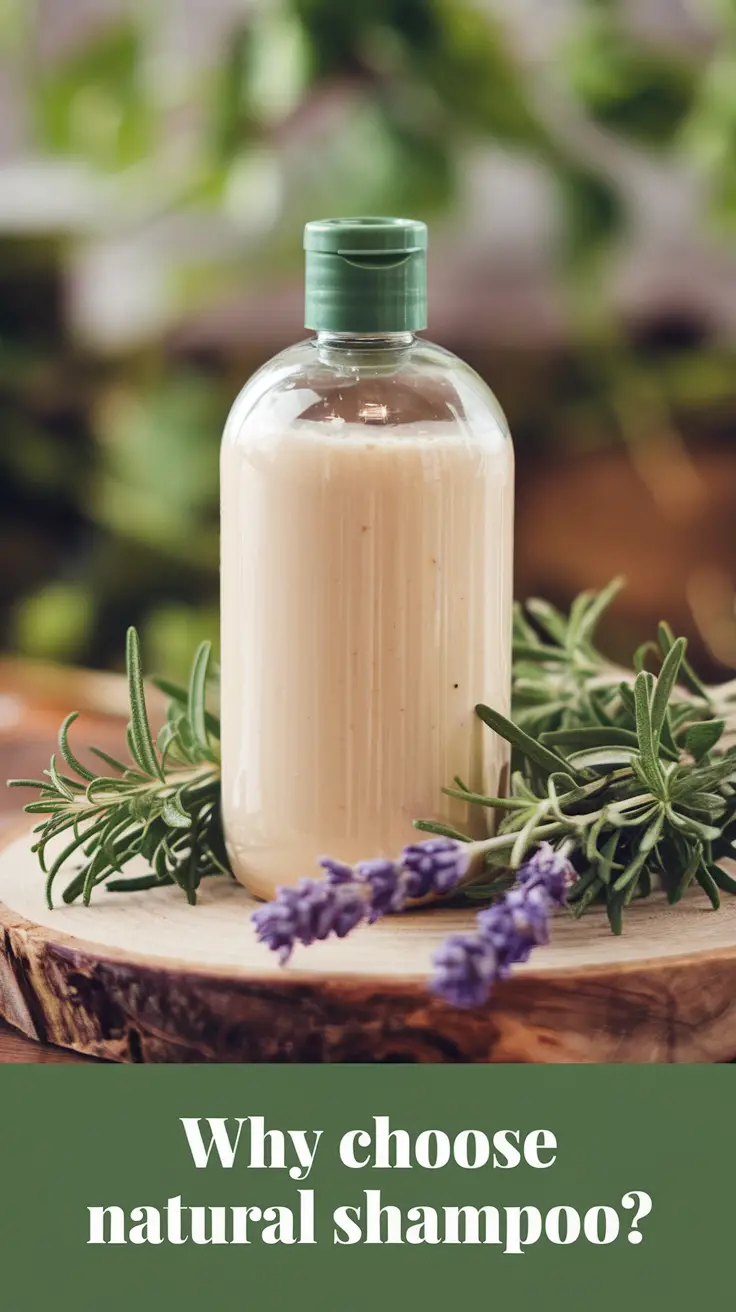Natural Shampoo Recipes: Your Complete Guide to DIY Hair Care
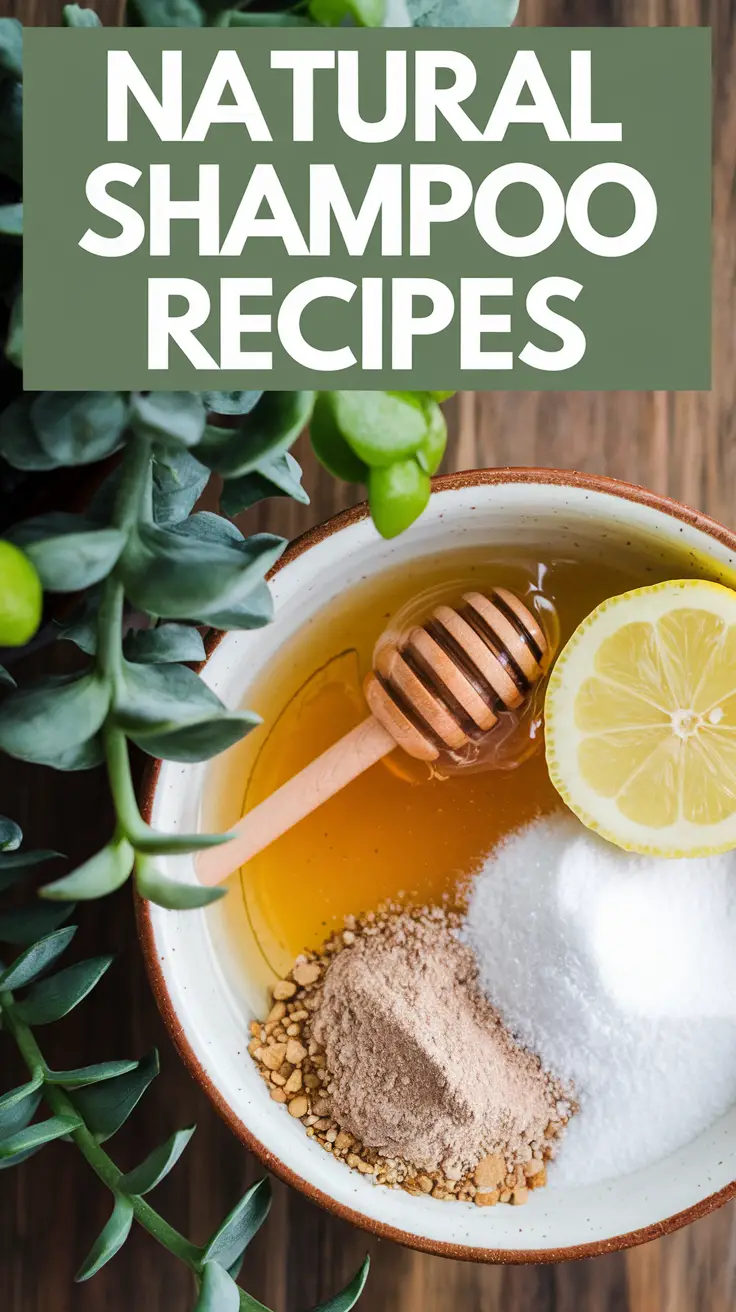
Switching to natural shampoo recipes is not just a trend—it’s a transformative approach to hair care. From restoring scalp health to reducing exposure to harsh chemicals, making your own shampoo is a journey worth taking. Drawing from my personal experience and what many have shared, I can confidently say: it’s easier and more rewarding than it seems. Let’s dive into the essentials and recipes for crafting shampoos tailored to your needs.
Why Choose Natural Shampoo?
Commercial shampoos may promise luscious locks, but they often come at a cost: sulfates, parabens, and synthetic fragrances can harm your scalp and hair. Natural shampoos, on the other hand, bring benefits like:
- Gentle Cleansing: No stripping of natural oils.
- Customizable Formulas: Tailor recipes for specific hair types.
- Eco-Friendliness: Reduce waste by reusing containers and avoiding harmful chemicals.
- Cost Efficiency: Save money by using ingredients from your pantry.
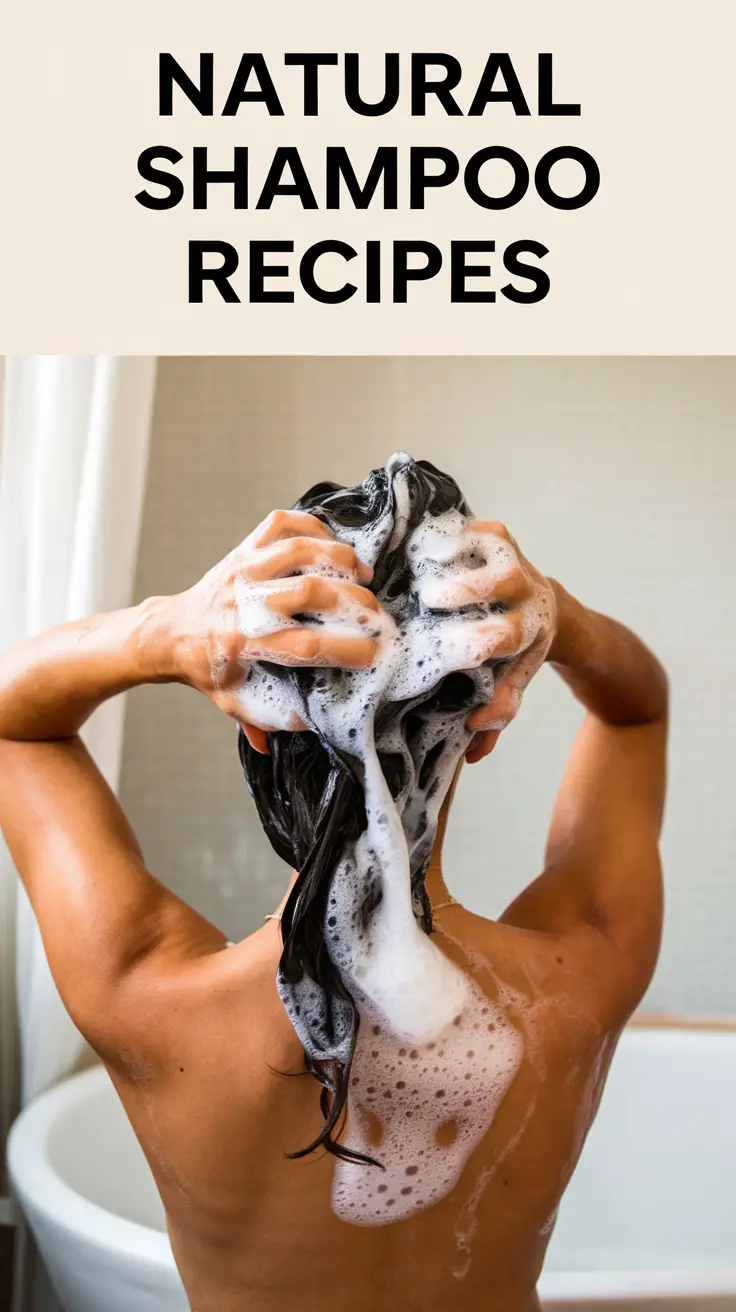
Essential Ingredients and Their Benefits
To create your own shampoo, start with a few simple ingredients that offer a range of benefits.
| Ingredient | Benefit | Hair Type |
|---|---|---|
| Liquid Castile Soap | Gentle cleansing | All hair types |
| Coconut Milk | Deep hydration | Dry, damaged hair |
| Aloe Vera | Soothes the scalp | Sensitive or irritated skin |
| Apple Cider Vinegar | Balances pH, removes buildup | Oily, dandruff-prone hair |
| Essential Oils | Adds fragrance, therapeutic properties | Customizable |
DIY Natural Shampoo Recipes
Basic Shampoo for Everyday Use
This versatile recipe is perfect for all hair types.
Ingredients:
-
- ¼ cup distilled water
- ¼ cup liquid Castile soap
- ½ teaspoon jojoba oil
Instructions:
-
- Mix all ingredients in a bottle.
- Shake before each use.
- Massage into wet hair and rinse thoroughly.
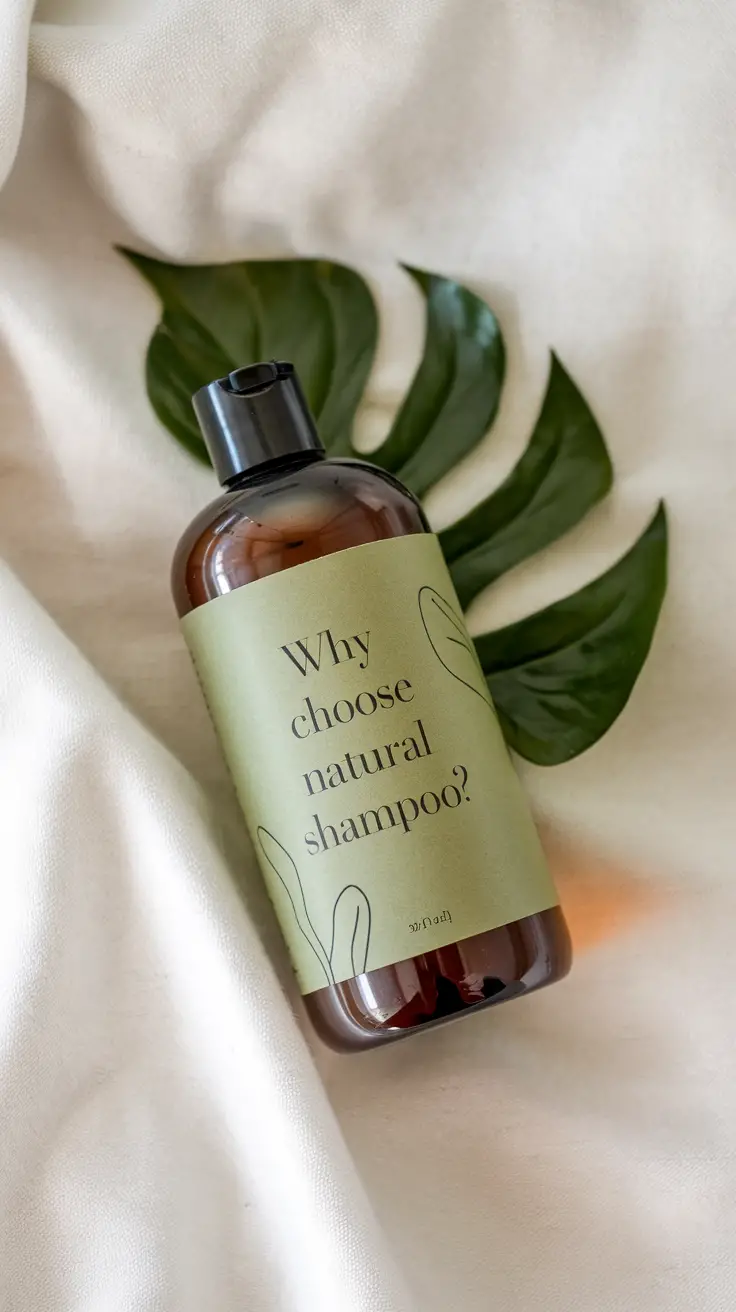
Moisturizing Coconut Milk Shampoo
Ideal for dry or damaged hair.
| Step | Instructions |
|---|---|
| Prepare Base | Mix ¼ cup coconut milk with ¼ cup Castile soap. |
| Add Fragrance | Include 10 drops of lavender essential oil. |
| Storage | Keep in a pump bottle; refrigerate for freshness. |
Baking Soda Clarifying Shampoo
A simple recipe for oily hair or removing buildup.
Ingredients:
-
- 1 tablespoon baking soda
- 1 cup water
Instructions:
-
- Dissolve baking soda in water.
- Apply to wet hair, focusing on the scalp.
- Rinse with an apple cider vinegar solution for best results.
Tip: Use sparingly—once a week is enough to avoid drying out your hair.
Aloe Vera and Honey Shampoo
Perfect for sensitive scalps and maintaining shine.
Ingredients:
-
- ½ cup aloe vera gel
- 1 tablespoon raw honey
- ½ cup liquid Castile soap
Instructions:
-
- Mix all ingredients in a pump bottle.
- Shake gently before each use.
- Apply and rinse thoroughly.
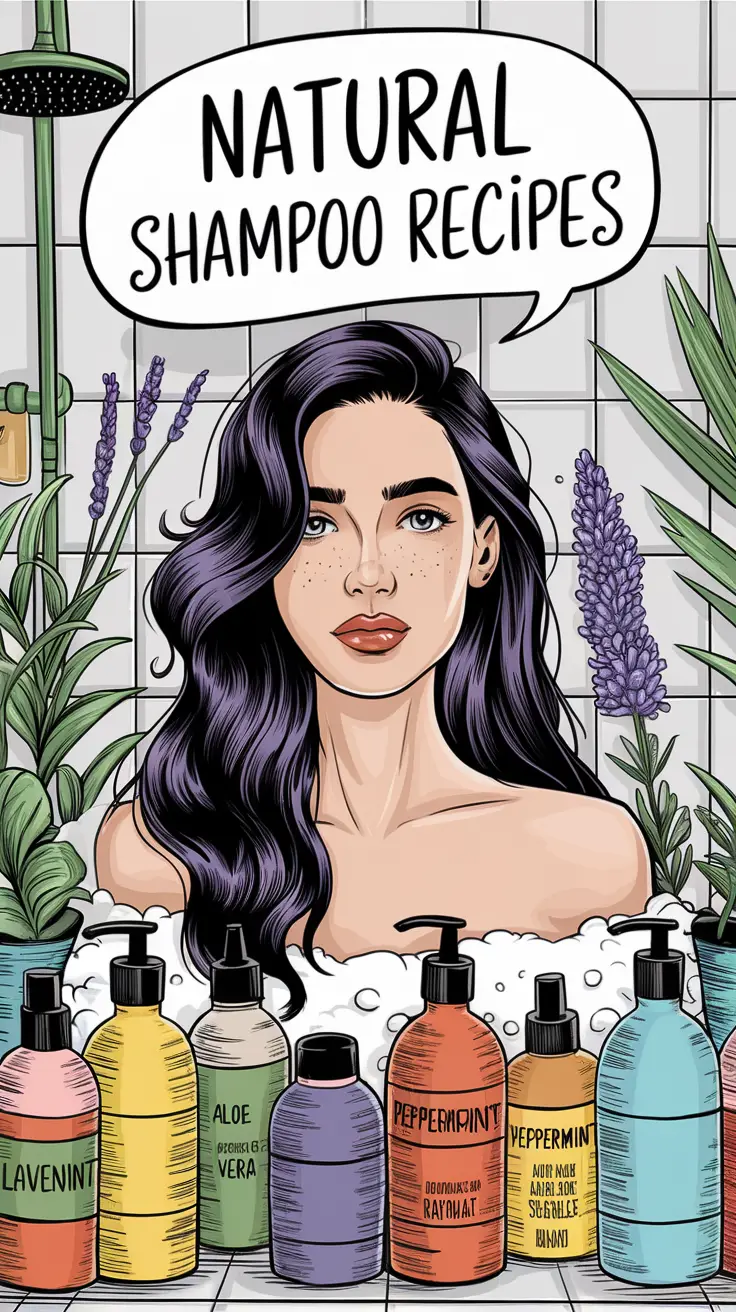
Tips for Transitioning to Natural Shampoo
Switching to natural shampoo is not always seamless—your scalp may need time to adjust. Here are my tried-and-true tips:
- Start Slow: Alternate between natural and commercial shampoos to ease the transition.
- Embrace the Detox Period: Expect some oiliness or waxiness as your scalp balances itself.
- Use Rinses: Apple cider vinegar rinses can help remove buildup and smooth your hair.
Troubleshooting Common Issues
| Problem | Solution |
|---|---|
| Residue buildup | Use a clarifying rinse weekly. |
| Dryness | Add more hydrating ingredients like coconut milk. |
| Scalp irritation | Avoid baking soda; opt for aloe vera instead. |
FAQs About Natural Shampoo
Can I store homemade shampoo?
Yes, but without preservatives, it’s best to use within 1–2 weeks. Refrigeration can extend shelf life for recipes containing fresh ingredients.
Are natural shampoos safe for children?
Yes, but avoid strong essential oils. Mild recipes with ingredients like aloe vera and honey work best.
What’s the best natural conditioner?
Diluted apple cider vinegar or a coconut oil hair mask pairs well with natural shampoos for added hydration and shine.
How do I know which recipe suits my hair?
Experiment with small batches and adjust ingredients based on your hair’s response.
Can I make a shampoo bar?
Absolutely! Combine melted Castile soap, olive oil, and herbs like chamomile, then pour into molds to solidify.
Conclusion
Natural shampoos are a gift to your hair and the environment. They’re gentle, customizable, and free of harmful chemicals. Whether you’re combating dryness, oiliness, or sensitivity, there’s a recipe here for you. Take that first step toward healthier hair—your locks will thank you!
